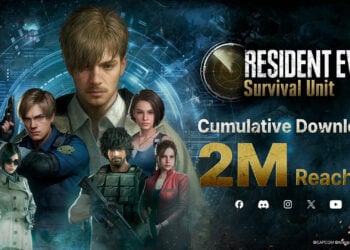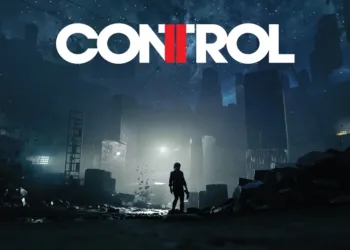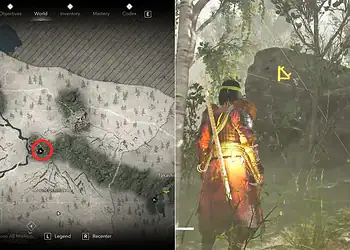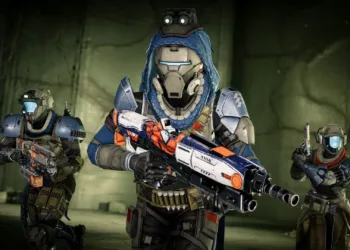GTA has taken players to Liberty City, Vice City, San Andreas, and beyond—but never permanently outside America. In a revealing interview on the Lex Fridman podcast, former Rockstar co-founder Dan Houser finally explained why the iconic franchise remains stubbornly American, despite global appeal that could justify settings anywhere on Earth.
Table of Contents
GTA’s American Settings Throughout History
| Game Title | Location | Real-World Inspiration |
|---|---|---|
| GTA III | Liberty City | New York City |
| GTA Vice City | Vice City | Miami, Florida |
| GTA San Andreas | San Andreas | California/Nevada |
| GTA IV | Liberty City | New York City (modernized) |
| GTA V | Los Santos | Los Angeles, California |
| GTA VI | Vice City | Miami, Florida (returning) |
| Exception: GTA London (1999) | London | United Kingdom |
Only one expansion pack in 26 years has ventured outside America—GTA London for PlayStation 1 in 1999.

The Americana DNA of Grand Theft Auto
When asked if GTA could work in London or elsewhere, Houser’s response was definitive: “I think for a full GTA game, we always decided there was so much Americana inherent in the IP, it would be really hard to make it work in London or anywhere else.”
The franchise’s core identity revolves around distinctly American elements that don’t translate universally:
Gun Culture: America’s relationship with firearms creates gameplay mechanics central to GTA’s identity. The prevalence and variety of weapons reflect American reality in ways other countries can’t replicate.
Larger-Than-Life Characters: The American dream, excess, and personality types unique to U.S. culture define GTA’s memorable cast—from Liberty City mobsters to Los Santos celebrities.
Outsider’s Perspective: Houser, a British developer, views America through a satirical lens that shapes GTA’s trademark humor and social commentary.
According to the Lex Fridman Podcast episode, Houser emphasized that GTA represents “an outsider’s perspective” of America—a crucial creative angle that wouldn’t work examining other cultures.
For more insights into Rockstar’s creative philosophy, visit TechnoSports’ GTA developer interviews.
The GTA London Exception
Rockstar did experiment with non-American settings once. GTA London (1999) served as the first-ever PlayStation 1 mission pack, featuring top-down gameplay in Britain’s capital. Houser described it as “pretty cute and fun,” but the experiment was never repeated for mainline titles.
The London expansion’s limited scope—a mission pack rather than full game—demonstrates Rockstar’s recognition that GTA’s formula works best within American borders. The top-down perspective also avoided the immersive satire that defines modern GTA titles.
Why American Stories Resonate Globally
Despite being unmistakably American, GTA has achieved universal appeal. The franchise’s satirical take on American excess, materialism, and crime resonates internationally because American culture dominates global media. Players worldwide recognize the references, stereotypes, and locations even if they’ve never visited the United States.
“You needed guns, you needed these larger-than-life characters. It just felt like the game was so much about America,” Houser explained. This formula creates familiar yet exaggerated worlds that international audiences understand through movies, television, and music.
For analysis of GTA’s cultural impact, check out TechnoSports’ gaming culture features.

Houser’s Bittersweet GTA 6 Feelings
The podcast also revealed Houser’s complex emotions about not working on GTA 6—the first mainline entry without his creative input. After dedicating over 20 years and writing the last 10-11 GTA releases, stepping away proved “bittersweet.”
“Of course, letting go of something I worked on in one way or another for like 20 odd years… each of the games was a kind of standalone story,” Houser reflected. He left Rockstar in 2021 after completing Red Dead Redemption 2, now focusing on his company Absurd Ventures.
According to Rockstar Games’ official credits, Houser shaped 12 GTA titles throughout his tenure—an unprecedented creative legacy in gaming.
Vice City’s Return to Americana
GTA 6’s confirmed return to Vice City proves Rockstar’s commitment to American settings. The Miami-inspired locale originally appeared in 2002’s GTA Vice City, capturing 1980s excess and neon-soaked crime drama. The 2026 modern reimagining promises to explore contemporary Florida culture through Rockstar’s satirical lens.
The choice reinforces that American culture—with all its contradictions, excess, and diversity—provides endless creative fuel for Grand Theft Auto’s brand of interactive satire.
For comprehensive GTA 6 coverage and updates, bookmark TechnoSports’ GTA 6 news hub.
FAQs
Could GTA ever succeed in a non-American setting in the future?
Theoretically yes, but it would require fundamental reimagining of core mechanics and narrative approach. Houser’s explanation reveals GTA’s American identity isn’t arbitrary—gun culture, character archetypes, and satirical targets are deeply intertwined with U.S. society. A hypothetical GTA: Tokyo or GTA: London would need different gameplay loops (restricted firearms access), character types, and cultural satire that might alienate the established fanbase. However, with Houser no longer at Rockstar, new creative leadership could potentially explore international settings if they discover similarly rich satirical material elsewhere. The franchise’s massive success creates risk-aversion though—why abandon the proven American formula?
Does Dan Houser’s departure diminish GTA 6’s potential quality?
Not necessarily, though it introduces uncertainty. Houser’s 20+ year tenure shaped GTA’s voice, but Rockstar employs hundreds of talented writers, designers, and developers who contributed to previous successes. GTA V and Red Dead Redemption 2 were collaborative efforts, not single-person projects. Additionally, creative turnover sometimes revitalizes franchises—new perspectives can prevent formula fatigue. The real test comes when GTA 6 launches in May 2026. If the writing maintains the sharp satire and memorable characters of previous entries, it proves Rockstar’s institutional knowledge survived Houser’s exit. If the narrative feels generic or the humor misses, concerns about his absence will seem justified retrospectively.







